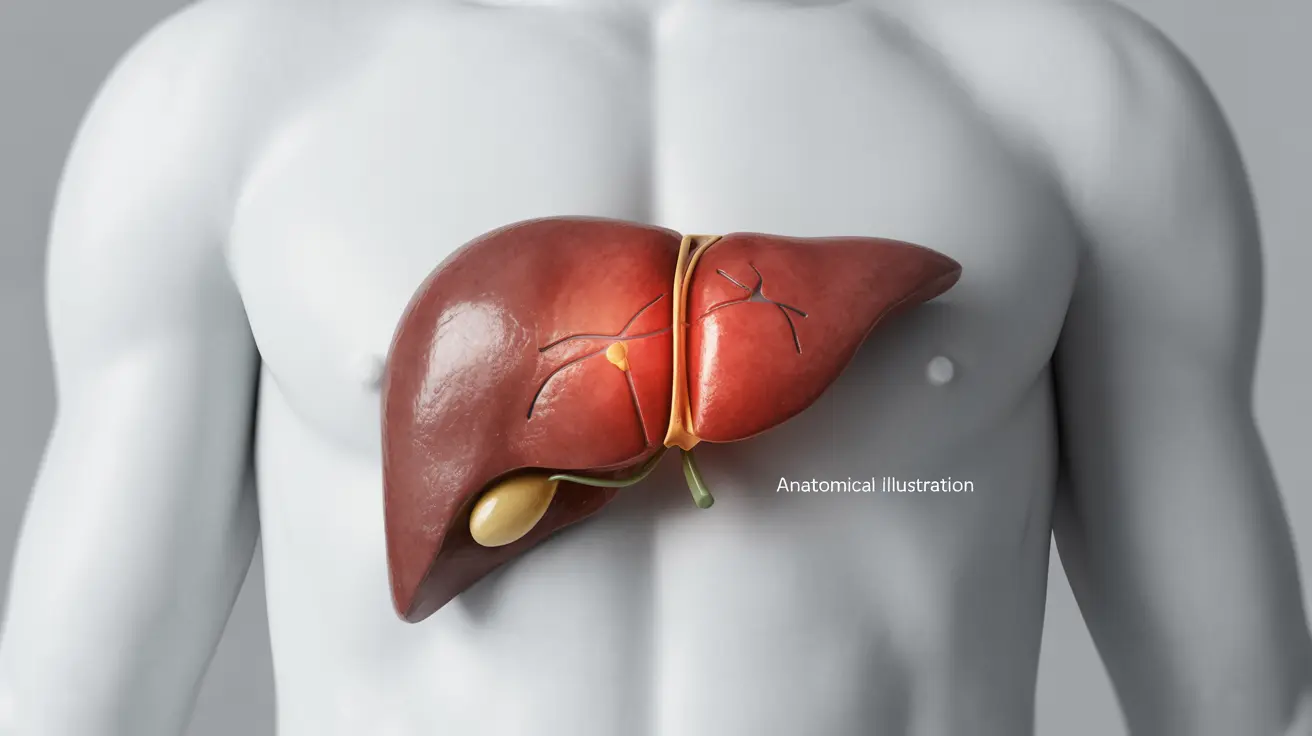Liver pain can be a concerning symptom that may indicate various underlying health conditions affecting this vital organ. Located in the upper right portion of your abdomen, the liver plays crucial roles in digestion, detoxification, and metabolism. Understanding the causes, symptoms, and treatment options for liver pain is essential for maintaining your health and knowing when to seek medical attention.
While the liver itself doesn't contain pain receptors, inflammation or enlargement of the liver can cause discomfort in the surrounding tissues and capsule. This pain typically manifests as a dull ache or sharp sensation in the upper right abdomen, sometimes extending to the back or right shoulder blade.
Common Causes of Liver Pain
Liver pain can result from various conditions affecting liver health and function:
- Hepatitis (viral or alcoholic)
- Fatty liver disease
- Cirrhosis
- Liver abscess
- Liver cysts
- Gallstones
- Liver cancer
- Medications or toxins
Recognizing Liver Pain Symptoms
Liver pain often presents with distinctive characteristics and accompanying symptoms:
Primary Symptoms
- Sharp or dull pain in the upper right abdomen
- Pain that worsens with deep breathing
- Tenderness when touching the area
- Referred pain in the right shoulder
Associated Symptoms
- Jaundice (yellowing of skin and eyes)
- Fatigue and weakness
- Nausea or vomiting
- Loss of appetite
- Dark urine
- Pale stools
- Unexplained weight loss
Diagnosis and Medical Evaluation
When you present with liver pain, healthcare providers typically follow a comprehensive diagnostic approach:
Physical Examination
Your doctor will carefully examine your abdomen, checking for tenderness, swelling, and other physical signs of liver problems.
Diagnostic Tests
- Blood tests (liver function tests, viral markers)
- Imaging studies (ultrasound, CT scan, MRI)
- Liver biopsy (if necessary)
- Additional specialized tests based on suspected conditions
Treatment Approaches
Treatment for liver pain varies depending on the underlying cause:
Medical Treatments
- Antiviral medications for viral hepatitis
- Antibiotics for bacterial infections
- Pain management medications
- Specific treatments for identified conditions
Lifestyle Modifications
- Avoiding alcohol
- Maintaining a healthy weight
- Following a liver-healthy diet
- Regular exercise
- Staying hydrated
Prevention and Long-term Management
Protecting your liver health involves several key strategies:
- Limiting alcohol consumption
- Maintaining a balanced diet
- Regular exercise
- Avoiding unnecessary medications
- Getting vaccinated against hepatitis
- Regular medical check-ups
Frequently Asked Questions
What are the common causes of liver pain and how can I recognize its symptoms? The most common causes include viral hepatitis, fatty liver disease, and cirrhosis. Symptoms typically include pain in the upper right abdomen, fatigue, jaundice, and digestive issues.
How is liver pain diagnosed and what tests will a doctor perform? Doctors typically perform physical examinations, blood tests to check liver function, and imaging studies such as ultrasound or CT scans. In some cases, a liver biopsy may be necessary.
What treatments are available for liver pain caused by conditions like fatty liver disease or hepatitis? Treatment options include antiviral medications for hepatitis, lifestyle changes, weight management, and specific medications depending on the underlying condition.
When should I seek immediate medical attention if I experience liver pain? Seek immediate medical care if you experience severe abdominal pain, high fever, significant nausea/vomiting, jaundice, or confusion along with liver pain.
How can lifestyle changes help prevent or reduce liver pain and protect liver health? Lifestyle modifications such as limiting alcohol consumption, maintaining a healthy diet, exercising regularly, and avoiding toxic substances can significantly improve liver health and prevent pain.




